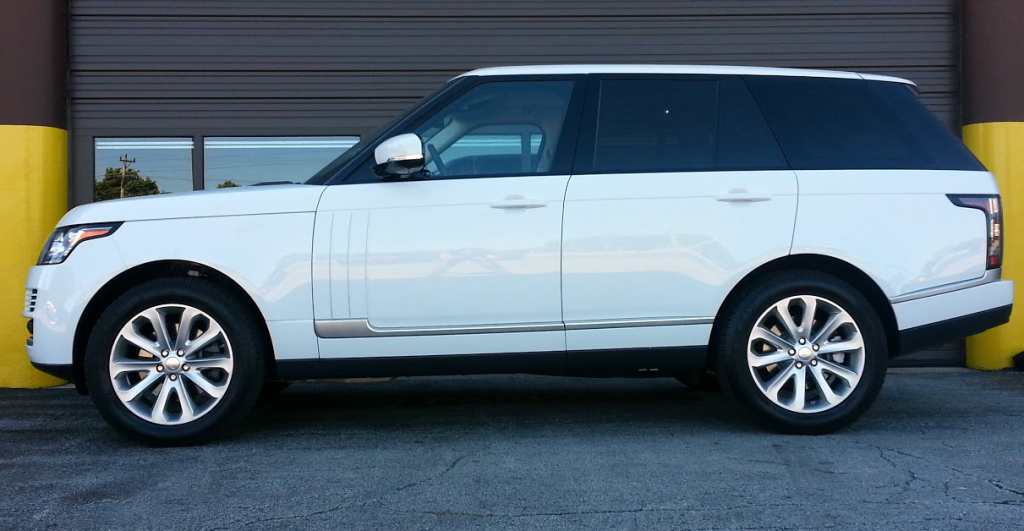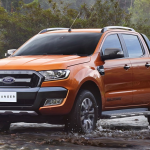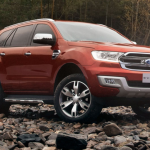
 2015 Land Rover Range Rover HSE
2015 Land Rover Range Rover HSE
Class: Premium Large Crossover
Dates tested: 8/03/2015 – 8/10/2015
Miles Driven: 424
Fuel Used: 23.2
Real-world fuel economy: 18.3 mpg
Driving mix: 55% city, 45% highway
EPA-estimated fuel economy: 17/23/19 (city, highway, combined)
Base price: $83,495 (not including $925 destination charge)
Options on test car: HSE Package ($6500), Vision Assist Package ($1860), tow package with full-size spare ($900), Meridian Premium Audio ($2150), Range Rover Protection Package ($556)
| CG Report Card | |
|---|---|
| Room and Comfort | A |
| Power and Performance | B+ |
| Fit and Finish | A+ |
| Fuel Economy | B |
| Value | C |
| Report-card grades are derived from a consensus of test-driver evaluations. All grades are versus other vehicles in the same class. Value grade is for specific trim level evaluated, and may not reflect Consumer Guide's impressions of the entire model lineup. | |
Price as tested: $96,386
Quick Hits
The great: Beautiful cabin, ample passenger space
The Good: Refined ride, serious off-road potential
The not so good: Pricey options
More Ranger Rover price and availability information
John Biel
All hail the Range Rover, conqueror of inhospitable lands and breaker of budgets!
Impeccably outfitted and prodigiously powered, this kingly head of the House of Land Rover is well known for its ability to master any road—or make one of its own if none exists. It is well stocked with technologies designed to do this with ease, probably because it would be unseemly to make its driver work up a sweat amid such luxurious surroundings.

However, be ready to pay for the privilege. Just comparing base prices alone, 2015 Range Rovers start—at $83,495—where most other members of the premium large sport-utility vehicle class are about ready to top out. In Autobiography-series trim, they completely distance themselves from the pack, and run up to $200,995 for a long-wheelbase Autobiography Black with Valloire White paint.
The ’15 Range Rover that Consumer Guide® editors tested was one of the “humbler” ones, a V6 HSE on the base 115-inch wheelbase with a starting price of $89,995. (It costs another $5200 to step up to a 122.8-inch long-wheelbase version, which is new to the HSE this year.) Depending on how you look at it, the HSE can be considered an “option model.” The window sticker actually shows HSE equipment as a $6500 package on the base Range Rover that replaces the standard grained-leather upholstery with smoother perforated hides, and adds a panoramic sunroof; 20-inch alloy wheels; automatically dimming, heated, and power-folding mirrors; heated rear seats; twin-blade sun visors; 14-way adjustable front seats with adjustable bolsters; 4-way-tilting head rests; and “soft door close.”
That was hardly the end of the spending for the test vehicle, however. With options and delivery, our Fuji White HSE hit the road for $96,386.
Test Drive: 2015 Land Rover Range Rover Sport HSE
Huge swaths of soft-touch materials are found on the dash, doors, and even the sides of the console. How thorough is the cabin detailing? Even the insides of the storage pockets in all 4 doors are flocked. There’s generous use of wood trim, with some bright-metal highlights. The front seats are comfy and cosseting, and feature inboard pull-down arm rests. The rear seat can fit 3 adults, and the middle passenger won’t feel punished. Note that seating is limited to 5 passengers—there’s no 3rd row, which puts another wrinkle into the value equation.
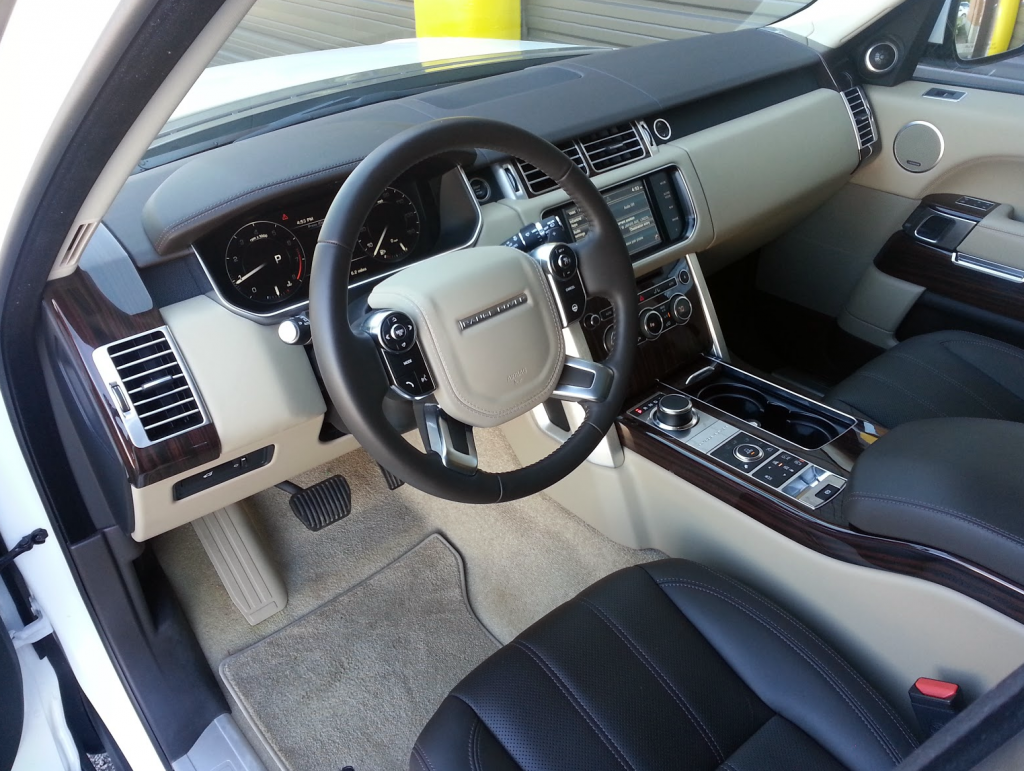
Leg and head room are bountiful in either row. Doors open wide to aid getting in and getting out, though step-in height is a little tall. Fairly big windows are helpful for vision.
Cabin storage in front consists of good-sized door map pockets; 2 glove boxes, one above the other (with lids that power down); twin cup holders with a slide-top cover that blends in with the polished wood on the console; and a covered console box that also houses an auxiliary jack and twin USB ports. Back-benchers get smaller door pockets, but there are hard-sided pull-out pouches in the seat backs ahead of them, and they have access to plug-in power points and seat-heater/climate-control buttons built into the back of the console. There’s also a pull-down center arm rest with twin cup holders and a small, shallow, covered storage compartment.
Standard audio and navigation settings are accessed through an 8-inch touchscreen. Climate controls set lower on the dash have dials for temperature and fan-speed settings but buttons for other functions. (This driver is still amused by the button with seat icons on it, which doesn’t turn on the front seat heaters/coolers, but activates touchscreen images of seats and up/down arrows. It’s there, 2 steps in, that passengers can finally get the comfort setting that they want.) The console is home to the well-placed buttons and pop-up dial that govern the electronic Terrain Response2 system that is at the heart of the Range Rover’s mastery of varied driving surfaces like mud, rocks, sand, or snow.
Test Drive: 2015 Lincoln Navigator
At the rear is a big flat-floored cargo area with a conveniently low lift-over. Rear seats fold in a 60/40 split to provide more hauling capacity. The tailgate is old-school station wagon: separate transom window and bottom-hinged tailgate, both parts with power-assisted operation (which is something you wouldn’t have found on a 1958 Chevrolet Brookwood).
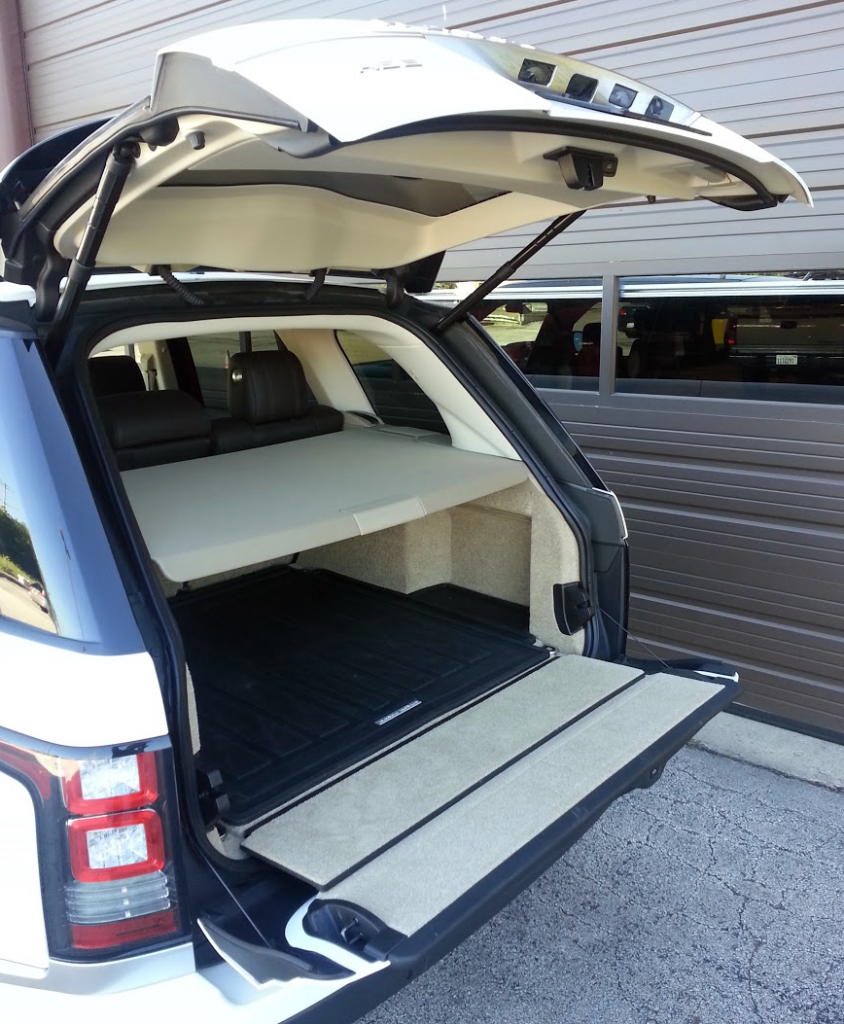
The 340-horsepower 3.0-liter supercharged V6 pulls eagerly off the line with the help of 332 lb-ft of torque. Linear acceleration comes with almost-imperceptible shifts from the 8-speed automatic transmission. Meanwhile, engine and exhaust noise are kept at bay. Land Rover uses stop-start technology in hopes of saving a little gas when the Range Rover halts for a red light or a passing train. (A press of a button lets drivers turn this function on or off.) This driver put 163.5 miles on the test vehicle, 65 percent in city-style driving, and saw fuel economy of 16.10 mpg. That’s not great. The V6 Range Rover is rated by the EPA at 17 mpg in the city, 23 on the highway, and 19 combined.
The aluminum body structure is quiet and feels tight. Ride is smooth and well damped, minimizing the effects of imperfect pavement on passenger comfort. Indeed, the Range Rover features air suspension at all 4 corners. If there’s one tiny blot on this picture it’s that this somewhat high-riding vehicle can lean and pitch a little going around corners or braking forcefully. Steering is nicely weighted, almost light, and maneuverability is pretty good for a large SUV.
In short, the Range Rover is some princely conveyance—but it comes for a princely sum.
First Spin: 2015 Land Rover Discovery
